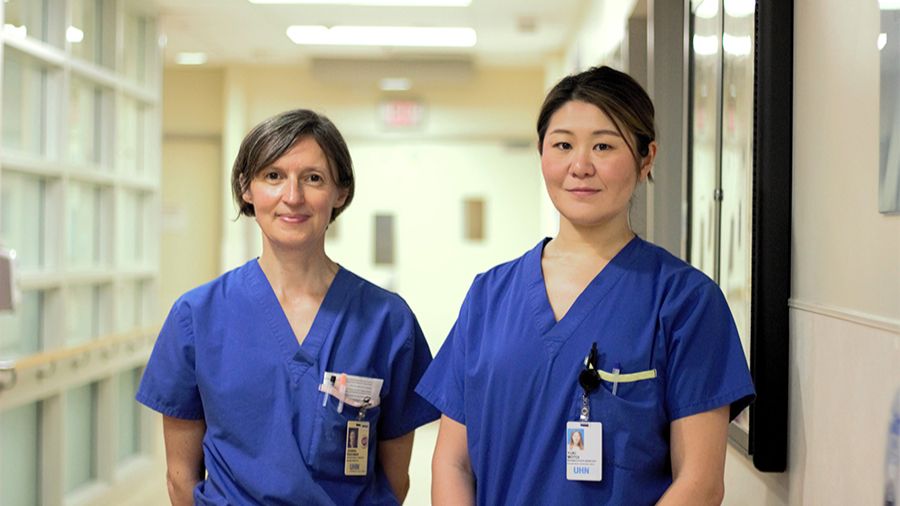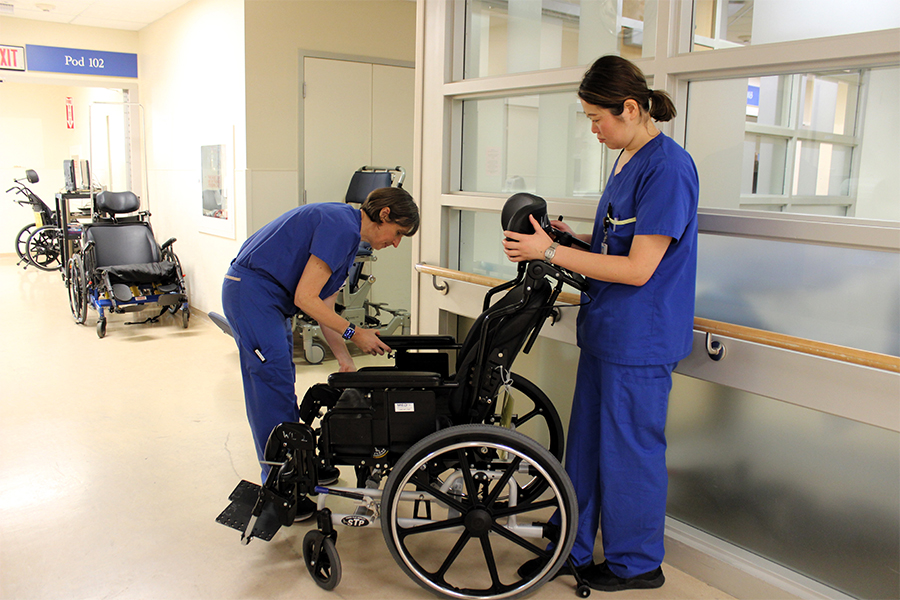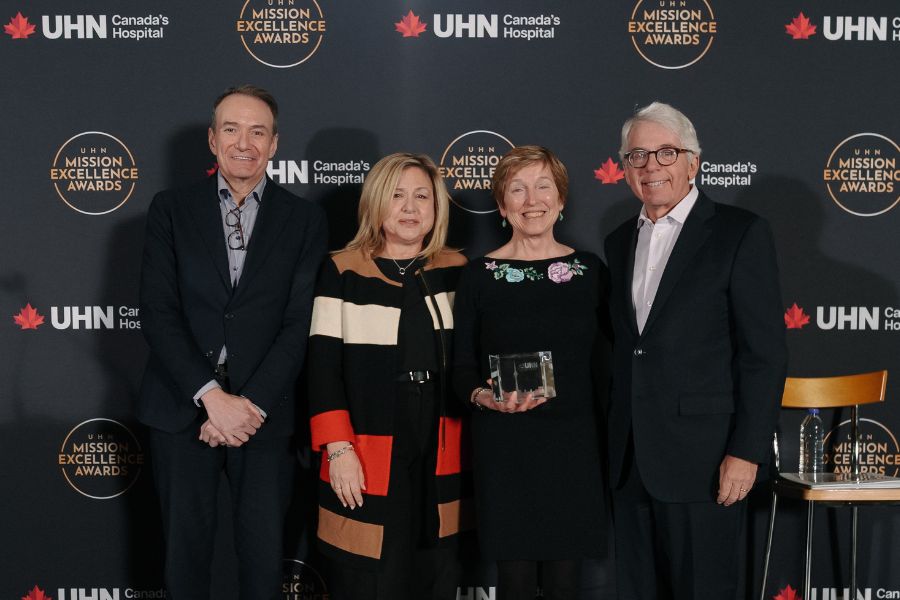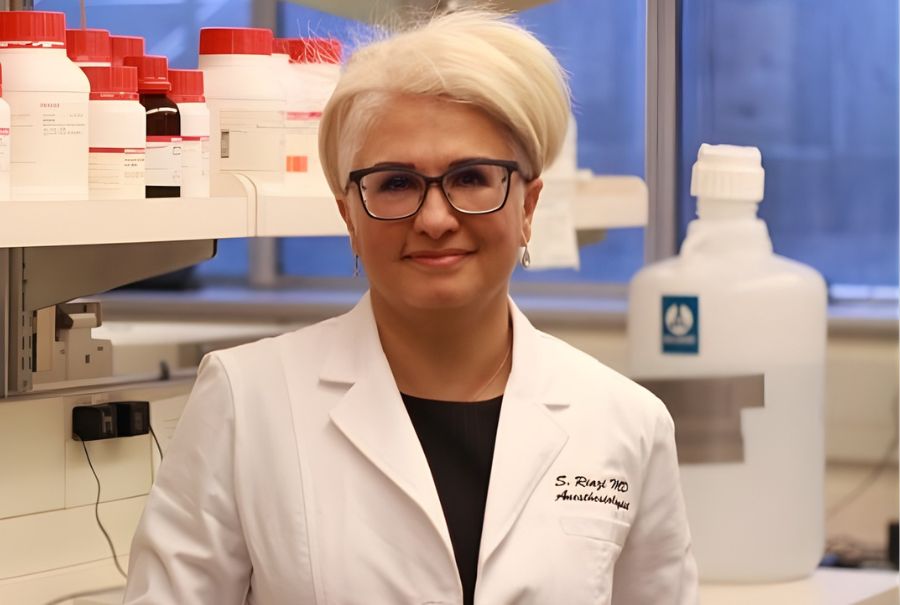
For Joanna Rodomar, occupational therapy is much more than helping patients get back on their feet.
The occupational therapist (OT) in Toronto Western Hospital’s Medical Surgical and Neuroscience Intensive Care Unit (MSNICU) believes it’s about motivating people to persevere despite the circumstances and equipping them with the tools they need to take back their life.
“The ICU is not an area of practice that first comes to mind when people think about occupational therapy, but it’s a very important role,” says Joanna, who has provided coverage on the unit for several years.
“We help patients participate in daily activities during the most difficult moments in their lives,” she says. “We often see them move on from the ICU to the ward, then to rehab — and it’s a privilege to be a part of that.”
October is Occupational Therapy Month in Canada. At UHN, there are 175 occupational therapists (OTs) and 78 occupational therapy assistants (OTAs), who work in a wide range of clinical settings.
Whether it’s spinal cord injury, stroke, neurology, mental health, oncology, musculoskeletal, geriatric, dementia and many other programs and patient populations, OTs and OTAs help patients work toward getting back to their daily activities after an illness or injury.
“While occupational therapy can look like many things, it is truly the essence of rehabilitation and recovery,” says Edith Ng, the Discipline Head of Occupational Therapy at UHN. “Getting back to daily living is immensely difficult for some patients.
“It’s essential that we help our patients rebuild confidence and self-sufficiency back into their lives.”
Joanna’s job as an OT in the MSNICU is to assess patients’ performance in activities of daily living, understand how physical, cognitive, or perceptual limitations caused by illness impact that performance, then determine how to help them with their functional recovery.
In the ICU, the focus is on basic activities such as sitting on the side of the bed or in a wheelchair, being able to use oral suction independently, putting on shoes, washing hands and face, and using the toilet.
What’s more, research has shown that early occupational therapy is associated with better outcomes for ICU patients, including enhanced mobility, less delirium and a greater sense of independence and security — all of which Joanna helps patients manage every day.
But Joanna says it’s not a solo undertaking. Occupational therapy in the MSNICU is all about collaboration.
“None of this would be possible without the amazing interdisciplinary teamwork we have,” she says.
Joanna and OTA Yuki Motoi work closely with a team of nurses, doctors, physiotherapists, speech-language pathologists, social workers and other allied health professionals to find solutions for patients.

For example, Joanna and Yuki work with physiotherapists to get patients up to maintain a consistent routine to prevent deconditioning, disorientation and confusion. Yuki helps Joanna set up wheelchairs for patients, ensuring patient comfort and adequate pressure relief.
Joanna also provides patients with strengthening exercises for arm and hand weakness to aid in recovery and promote engagement in activities such as feeding, grooming or dressing.
And for patients who are unable to speak, Joanna works with a speech-language pathologist to determine alternate methods of communication, such as pointing, gestures, eye movement, writing or typing.
“We need to figure out how to enable them to communicate,” says Joanna. “Can they use their hands? Their eye gaze? Can they move their head to respond?”
Sometimes patients need the help of a device, which the pair can assess them for in collaboration with colleagues at Toronto Rehab.
Joanna says the most rewarding part of her job is witnessing people’s resilience.
“They just had a craniotomy or they just had spinal surgery, and yet they’re willing and motivated to get up and try new ways of doing things despite the pain and discomfort,” she says.
Yuki echoes this sentiment and says the most gratifying part of her job as an OTA is being able make a difference in patients’ lives — even if it’s just a small one.
“Even if we can’t improve their function significantly, we can still bring them little bits of joy every day,” says Yuki, noting what may seem like basic tasks of daily living for some are big accomplishments for others.
“Sometimes just having a conversation, engaging them in watching movies, colouring or washing their face and hands, is all it takes to make someone happy.”
By Shauna Mazenes

No one ever changed the world on their own but when the bright minds at UHN work together with donors we can redefine the world of health care together.


